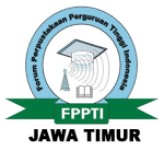Development and Contribution of Open Source Software Communities for the Library Progress in Indonesia
Downloads
Background of the study: Open source software is an open-based software and can be accessed for free. This open source software is growing rapidly at domestic and overseas. Many criteria are used by users. In this case, the library Also, choosing the open source software they need. There are several organization that a accommodate Review these users of open source software in Indonesia. Some of the open source software is the Slims organizes community and Surabaya's Linux Community.
Purpose: The purpose of this study was to determine the development and contribution of the community to libraries in Indonesia.
Method: The method used is a qualitative method with a descriptive approach.
Findings: The results of this study are the Open Source Community the which plays an important role in the progress of libraries in Indonesia, this can be seen from the number of school libraries that have implemented an IT in providing services to users by using open source software.
Conclusion: The conclusion is the development and contribution of the Open Source Community in Indonesia is needed for the progress of the library in the future.
Downloads
Appelbe B. (2003). The future of Open Source Software. J Res Pract Inf Tech (35), 227–236.
Aberdour, M. (2007). Achieving quality in open source software. IEEE Software, 24(1), 58–64.
Bagozzi, R. P., and Dholakia, U. M. (2006). Open Source Software User Communities: A Study of Participation in Linux User Groups. Management Science, 52(7), 1099–1115. doi:10.1287/mnsc.1060.0545
Bonaccorsi, A., and Rossi, C. (2003). Why Open Source software can succeed. Research Policy, 32(7), 1243–1258. doi:10.1016/s0048-7333(03)00051-9
Breeding, Marshall. (2002). An update on Open Source ILS, Information Today 19. no. 9, 42–43. (Available at http://www.onlineinc.com/it/oct 02/breeding.htm).
Crowston, K., Li, Q., Wei, K., Eseryel, U. Y., and Howison, J. (2007). Self-organization of teams for free/libre open source software development. Information and Software Technology, 49(6), 564–575. doi:10.1016/j.infsof.2007.02.004
Dahlander, L., and Magnusson, M. G. (2005). Relationships between open source software companies and communities: Observations from Nordic firms. Research Policy, 34(4), 481–493. doi:10.1016/j.respol.2005.02.003
Ducheneaut, N. (2005). Socialization in an Open Source Software Community: A Socio-Technical Analysis. Computer Supported Cooperative Work (CSCW), 14(4), 323–368. doi:10.1007/s10606-005-9000-1
Gulati, R., Puranam, P., and Tushman, M. (2012). Meta-organization design: Rethinking design in interorganizational and community contexts. Strategic Management Journal, 33(6), 571–586. doi:10.1002/smj.1975
Hars, Alexander and Ou, Shaosong. (2002). Working for Free? Motivations for Participating in Open-Source Projects. International Journal of Electronic Commerce, 6(3), 25–39. doi:10.1080/10864415.2002.11044241
Lakhani, K.R. and von Hippel, E. (2003). How Open Source Software works: "free” user-to-user assistance. Research Policy 32, 923–943.
Lakhani, K.R., Wolf, B., Bates, J., and DiBona, C. (2002). The Boston Consulting Group Hacker Survey. (Available at: http://www.osdn.com/bcg/.)
Lee Endres, M., Endres, S. P., Chowdhury, S. K., and Alam, I. (2007). Tacit knowledge sharing, self"efficacy theory, and application to the Open Source community. Journal of Knowledge Management, 11(3), 92–103. doi:10.1108/13673270710752135.
Lee, G.K., and Cole, R.E. (2003). From a firm-based to a community based model of knowledge creation: the case of the Linux kernel development. Organization Science 14 (6), 633–649.
Lerner, J. (2005). The Scope of Open Source Licensing. Journal of Law, Economics, and Organization, 21(1), 20–56. doi:10.1093/jleo/ewi002
Martin, K., and Hoffman, B. (2007). An Open Source Approach to Developing Software in a Small Organization. IEEE Software, 24(1), 46–53. doi:10.1109/ms.2007.5
Maryanto, Rusmanto. (2017). Komunitas Opn Source. (Available at: https://www.academia.edu/5833692/Komunitas_Open_Source)
Metcalfe, R., and Rahtz, S. (2006). Open source software. Retrieved from http://www.jisc.ac.uk/media/documents/publications/osswatchbp.pdf
O'Mahony, S., and Ferraro, F. (2007). The Emergence of Governance in an Open Source Community. Academy of Management Journal, 50(5), 1079–1106. doi:10.5465/amj.2007.27169153
Oh, W., and Jeon, S. (2007). Membership Herding and Network Stability in the Open Source Community: The Ising Perspective. Management Science, 53(7), 1086–1101. doi:10.1287/mnsc.1060.0623.
Saputra, D.F. (2015). Repositori Institusi Berbasis Omeka (Studi Kasus di Medical Knowledge Center – FK UPNVJ). Jurnal Ilmu Perpustakaan, Informasi dan Kearsipan Khizanah Al-Hikmah, 3(1), 11-19. Diambil dari http://journal.uin-alauddin.ac.id/index.php/khizanah-al-hikmah/article/view/585
Setiawan. (2017). Analisis Komparatif Sumber Terbuka (Open Source) Sistem Manajemen Perpustakaan Terpadu antara KOHA dan NEWGENLIB. Pustakaloka, Volume 9 No. 2, 312-322. (Available at: https://www.researchgate.net/publication/323755318_Analisis_Komparatif_Sumber_Tebuka_Open_Source_Sistem_Manajemen_Perpustakaan_Terpadu_Antara_Koha_dan_Newgenlib)
Shahrivar, S., Elahi, S., Hassanzadeh, A., & Montazer, G. (2018). A business model for commercial open source software: A systematic literature review. Information and Software Technology. doi:10.1016/j.infsof.2018.06.018
Stewart, D. (2005). Social Status in an Open-Source Community. American Sociological Review, 70(5), 823–842. doi:10.1177/000312240507000505
Valverde, S., Theraulaz, G., Gautrais, J., Fourcassie, V., & Sole, R. V. (2006). Self-Organization Patterns in Wasp and Open Source Communities. IEEE Intelligent Systems, 21(2), 36–40. doi:10.1109/mis.2006.34
Valverde, S. and Solé, R. V. (2007). Self-organization versus hierarchy in open-source social networks. Physical Review E, 76(4). doi:10.1103/physreve.76.046118
Van Wendel de Joode, R., and de Bruijne, M. (2006). The Organization of Open Source Communities: Towards a Framework to Analyze the Relationship between Openness and Reliability. Proceedings of the 39th Annual Hawaii International Conference on System Sciences (HICSS 06). doi:10.1109/hicss.2006.477
Von Krogh, G., Spaeth, S., & Lakhani, K. R. (2003). Community, joining, and specialization in open source software innovation: a case study. Research Policy, 32(7), 1217–1241. doi:10.1016/s0048-7333(03)00050-7
West, J. (2003). How open is open enough? Research Policy, 32(7), 1259–1285. doi:10.1016/s0048-7333(03)00052-0
West, J., & Gallagher, S. (2006). Challenges of open innovation: the paradox of firm investment in open-source software. R and D Management, 36(3), 319–331. doi:10.1111/j.1467-9310.2006.00436.x
Record and Library Journal by Unair is licensed under a Creative Commons Attribution-ShareAlike 4.0 International License.
1. The journal allows the author to hold the copyright of the article without restrictions.
2. The journal allows the author(s) to retain publishing rights without restrictions
3. The legal formal aspect of journal publication accessibility refers to Creative Commons Attribution Share-Alike (CC BY-SA).
4. The Creative Commons Attribution Share-Alike (CC BY-SA) license allows re-distribution and re-use of a licensed work on the conditions that the creator is appropriately credited and that any derivative work is made available under "the same, similar or a compatible license”. Other than the conditions mentioned above, the editorial board is not responsible for copyright violation.


 57201398420
57201398420

























